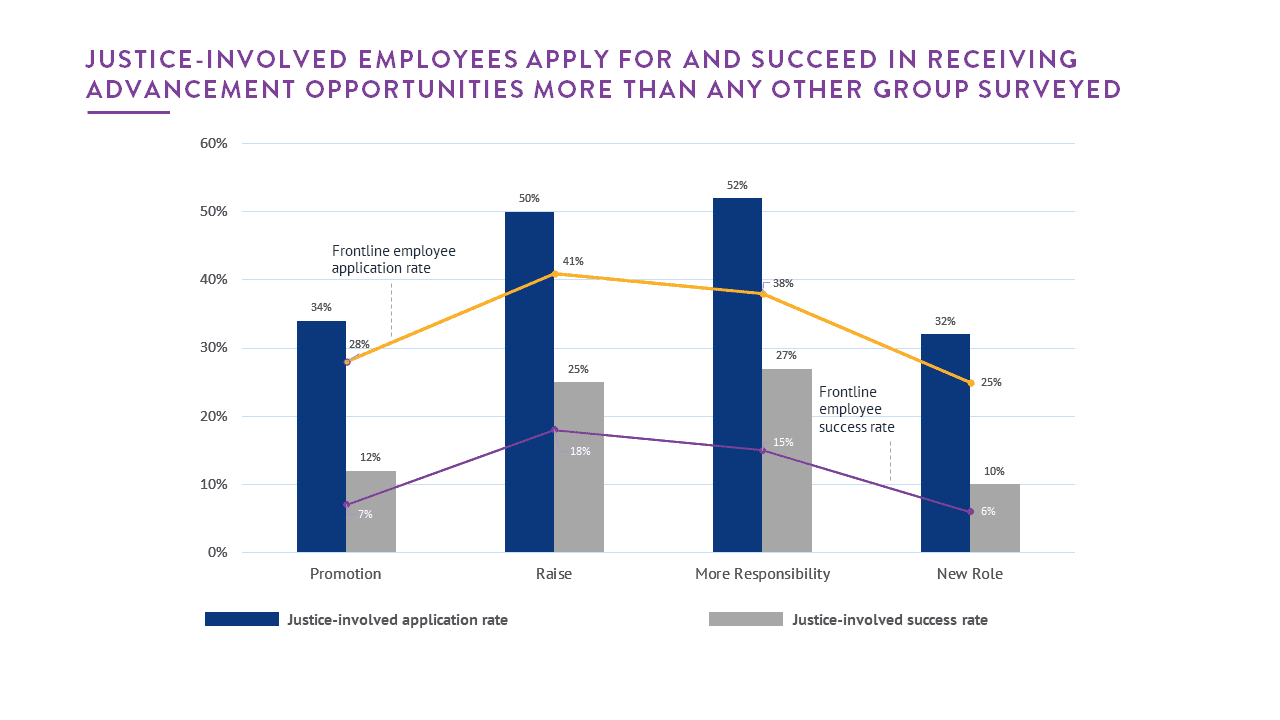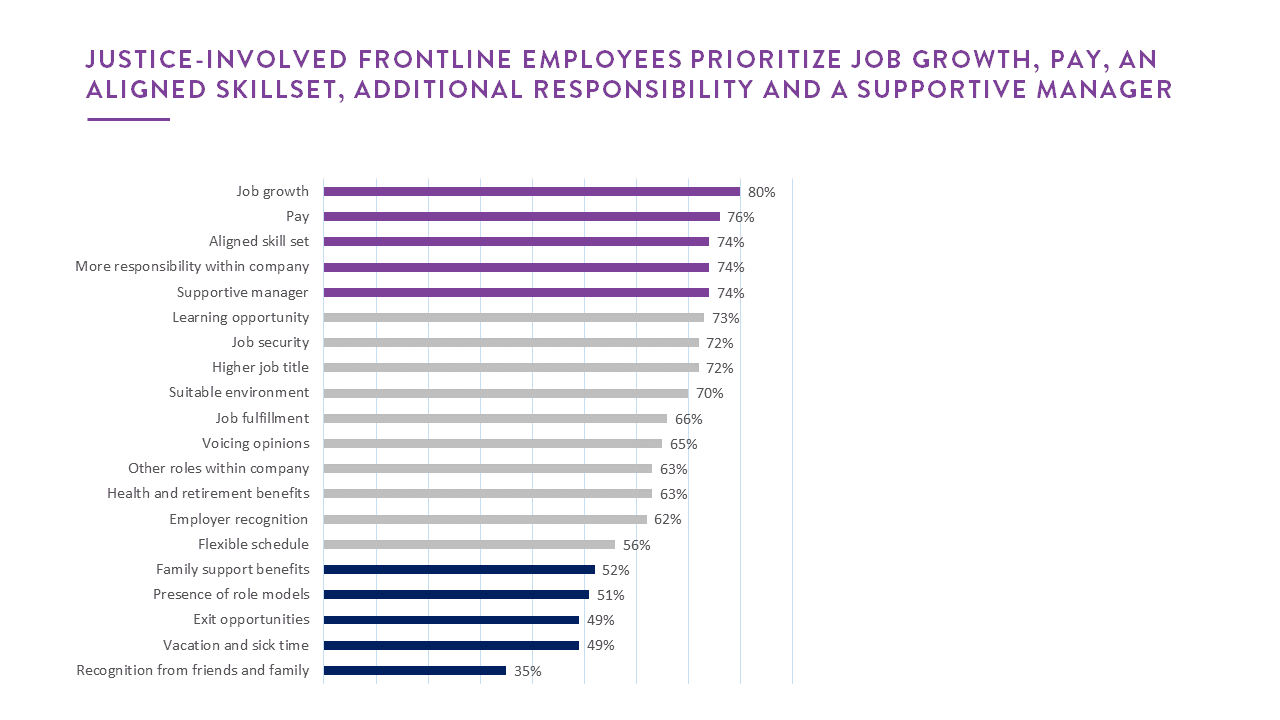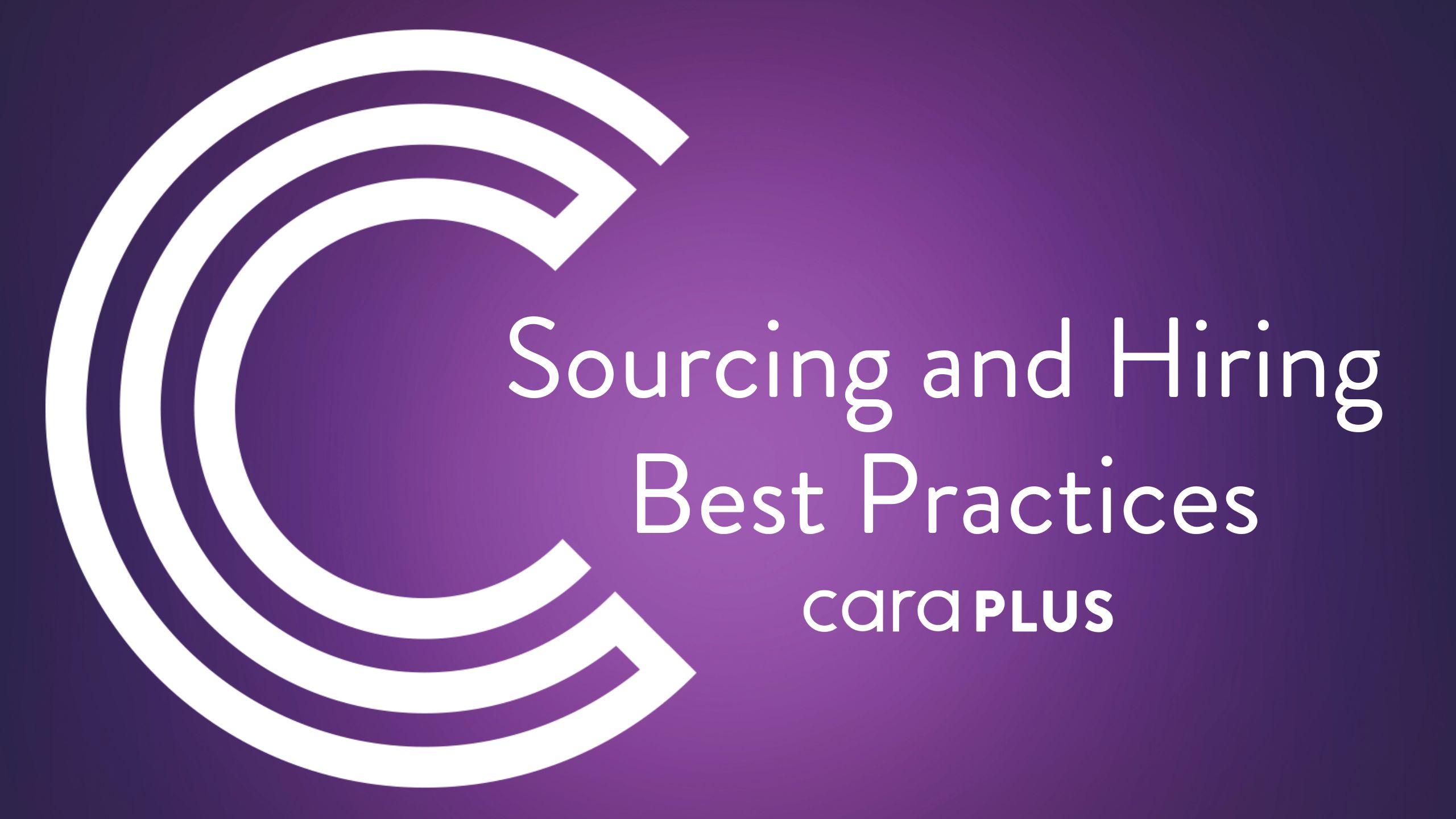Why Companies Should Think Beyond “Fair Chance” to a Future with Justice-Involved Employees

This summer, Cara Plus partnered with McKinsey & Company to publish one of the largest studies to explore the growth frontline employees want and experience in the workplace: Bridging the advancement gap: What frontline employees want—and what employers think they want. Of the 2,156 frontline employees surveyed, we were able to capture new insights on some of the most untapped talent pools, including individuals previously involved with the criminal justice system.
We often work with companies to determine how they can become fair chance employers, but the results of the study reveal that companies thinking about hiring justice-involved individuals into but not up in their organizations are missing out. The study found that justice-involved employees apply for and succeed in receiving advancement opportunities more than any other group surveyed – across gender, race, and age. Specifically, they apply for promotions at a rate six percentage points higher than other frontline employees and request more responsibility at a rate 14 points higher. They go on to successfully receive these promotions and opportunities for more responsibility at a rate of five and 12 percentage points higher, respectively, compared to other frontline employees.

The evidence suggests that this outcome is largely due to those employees’ exceptional motivation rather than employer-driven initiatives to promote access to advancement opportunities, where we saw a +10-point gap in employers’ stated availability of training, mentoring, and career paths vs. employees’ stated perception of them. Moreover, while justice-involved employees prioritize qualities like job growth and pay in their advancement like the broader group of frontline employees surveyed, they were more likely to value having more responsibility. To increase their capacity to take on these greater roles in their teams, we also saw justice-involved employees take advantage of upskilling opportunities at a rate 14 percentage points higher than other frontline employees in addition to a 10-point higher uptake of learning from co-workers, obtaining certifications, and doing the job before they get promoted.

This confirms what we have seen among job seekers we work with every day at Cara Collective, where nearly 50% of our participants (or 600+ people annually) have been impacted by the criminal justice system: when these individuals are given the opportunity (or a “fair chance”), they don’t waste it. Employers more broadly report justice-involved employees demonstrating a high level of effort and commitment to their jobs, often translating to higher rates of retention and advancement, which was reflected in the study. As Cara Collective graduate Lawrence Johnson says of his job at wholesale distributor The Bazaar Inc. – where he’s received two promotions in two years – “I now have a living wage, great benefits (I can provide health insurance for my daughter), and a great supervisor. I also got the chance to learn about managing facilities and now people trust and depend on me. [In this environment], you can get more pay, but I couldn’t leave when they’ve treated me so well.”
Lawrence’s experience points to another trend revealed in the study: while justice-involved employees generally deprioritize vacation and sick time, flexible schedules, and family support benefits relative to other frontline employees, pay, job security, and a suitable work environment became more important to them, especially after COVID. Despite evidence that they advance at higher rates than other frontline employees, justice-involved employees face unique barriers, including a 10-point higher rate of having stressful homelives, a 5-point higher rate of not perceiving opportunities to get ahead, and a 7-point higher rate of not having the skills to work from home (e.g., computer literacy). To help justice-involved employees tap into their incredible motivation and desire to stay and gain more responsibility at their companies, employers must consider how they support these individuals and connect them to roles and responsibilities that match their interests and skill sets.
What Employers Can Do
Employers can start by reflecting on their background requirements and background check process from a job seeker perspective to reduce barriers to these individuals entering their organizations. They can also clearly communicate advancement opportunities in job postings, which can be especially impactful for justice-involved candidates, who have a 6-point higher rate of utilizing written descriptions of career paths relative to other frontline employees. Employers can similarly connect these workers with others who have successfully advanced and leverage the fact that justice-involved employees also have an 8-point higher rate of utilizing on-the-job mentoring or shadowing.
Further taking advantage of justice-involved employees’ interest to expand their responsibilities and seek out training, companies can teach employees job functions other than those that are normally assigned and inform and remind employees of learning and development programs. When connecting these employees to specific opportunities to grow in the organization, companies should also keep in mind current skill gaps (like computer literacy) and where they can be supplemented. Finally, recognizing the additional barriers justice-involved employees can face outside the workplace, employers interested in tapping into this talent pool must also equip their managers to support and grow their teams, including aligning incentives for them to do so. We know this is especially important given the study’s finding that employees that advance are 15% more likely to receive positive feedback from their managers and 23% more likely to have frequent, manager-led conversations that demonstrate that their managers are invested in them.
In this supportive environment, justice-involved employees can not only help meet near term hiring demands in today’s tight labor market but can also serve as an enduring source of committed, quality talent. Perhaps just as importantly, employers can extend not only a fair chance, but a future for the 79 million Americans impacted by the criminal justice system. Or as Lawrence better explained, “When [my company] says, ‘We want you to succeed,’ how can they say that, and you not want it for yourself.”
To access deeper insights from the study Bridging the advancement gap: What frontline employees want—and what employers think they want, join Cara Plus’s next webinar unpacking data from the report on specific talent pools and industries.
Liana Bran is the Director of Expansion Strategy at Cara Collective. Her team, Cara Plus, works with companies to shift how they hire, cultivate, and grow untapped talent, to create more inclusive, thriving businesses.


